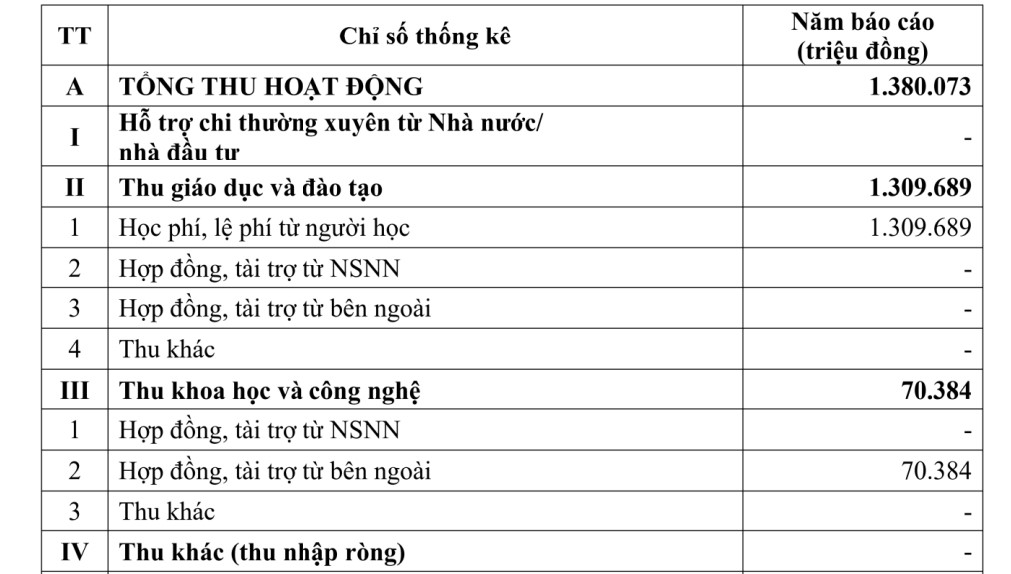Ho Chi Minh City University of Medicine and Pharmacy has a total revenue of VND 1,123 billion, of which tuition accounts for VND 821 billion, and revenue from research - technology transfer is only VND 105 billion. At the University of Technology (Vietnam National University, Ho Chi Minh City), the total revenue is more than 1,184 billion VND, of which tuition fees are 873 billion VND and revenue from scientific and technological activities is 126.5 billion VND.
Ton Duc Thang University reached more than 1,224 billion VND, tuition fees accounted for 1,072 billion VND, and research revenue was only 44.8 billion VND. Similarly, Ho Chi Minh City University of Technical Education has a total revenue of VND1,120 billion, of which tuition fees account for VND976 billion, while the revenue from science and technology is only VND46 billion.
Ho Chi Minh City University of Economics alone, total revenue in 2024 is 1,887 billion VND. Of the VND 1,343 billion collected from education and training, tuition fees account for VND 1,281 billion, the rest is from contracts, state and external funding. Other income is 61 billion VND.
Notably, the income from science and technology transfer of Ho Chi Minh City University of Economics is 520 8.8 billion, accounting for 27% of revenue. This is the university with the largest revenue from science and technology among the schools with high revenue today.
Ho Chi Minh City University of Technology (HUTECH) is also in the group of schools with high revenue, with a total revenue of more than 1,380 billion VND. The school representative said that HUTECH is implementing a plan to diversify revenue sources, prioritizing the development of scientific research activities and technology transfer.

According to Ms. Nguyen Thi Xuan Dung - Director of HUTECH Media Center, the school identifies scientific research as not only to increase revenue but also as a factor to enhance academic value, develop team capacity and affirm the school's reputation.
In the 2025-2030 period plan, HUTECH has set out many important orientations, such as: improving regulations on science and technology and innovation; investing in research facilities in key areas such as artificial intelligence, mechanics - automation, advanced materials, green technology; increasing international publications and promoting cooperation with businesses and localities in technology transfer.
In addition, the school will continue to improve policies to support research activities for lecturers and scientists, focusing on topics with potential for commercialization.
"With these solutions, HUTECH expects that in the next 5-10 years, revenue from scientific research will gradually increase and become one of the financial pillars, contributing to reducing dependence on tuition fees and promoting sustainable development," said Ms. Dung.
Dr. Hoang Ngoc Vinh - former Director of the Department of Vocational Education (Ministry of Education and Training) - said that the revenue of many universities is mainly from tuition fees, while the revenue from scientific research and technology transfer is still very low, reflecting the deviation in development strategies.
According to Dr. Vinh, instead of waiting inactively, schools must proactively " knock on the door" of businesses, accompanying in solving practical problems. To encourage, the State needs to play the role of " stepping agency", having an initial financial support mechanism to reduce risks for the research group.
In addition, university financial management must also be transparent, have a clear plan for investment in laboratories, equipment and knowledge reproduction, instead of focusing only on salary payment.
The three key factors for development, according to Dr. Vinh, are the research capacity of the team, effective financial management and connectivity with businesses.











